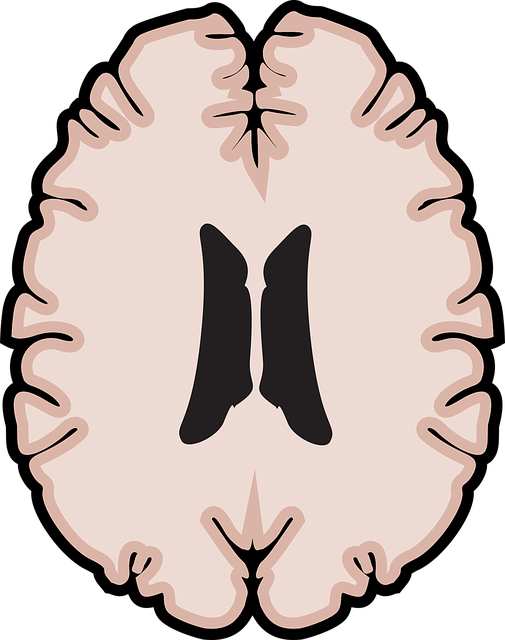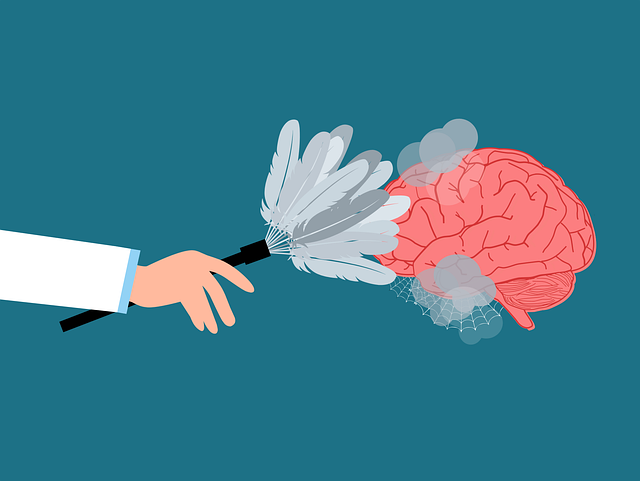Arvada Psychological Testing & Therapy (APTT) champions cultural competency in healthcare, addressing mental health disparities through tailored training programs. Their comprehensive approach includes workshops on cross-cultural communication, bias awareness, and diverse backgrounds, empowering professionals to provide culturally sensitive care. APTT's Community Outreach Program brings these skills directly to underserved communities, improving patient outcomes and satisfaction. Key strategies involve integrating cultural competency into curricula, advocacy training, self-reflection, and continuous learning, with evaluation methods measuring tangible improvements in clinical practice and health outcomes.
“Cultural competency in healthcare is essential for delivering quality, equitable care to a diverse population. This article explores the critical need for such training among healthcare providers and delves into the role of Arvada Psychological Testing & Therapy (APTT) as a leader in this domain. We examine key components of effective programs, practical implementation strategies for healthcare organizations, and methods to measure success. By understanding cultural competency, leveraging APTT’s expertise, and implementing robust training, healthcare providers can improve patient outcomes and foster more inclusive care.”
- Understanding Cultural Competency in Healthcare: Why It Matters
- The Role of Arvada Psychological Testing and Therapy in Training
- Key Components of Effective Cultural Competency Programs
- Implementation Strategies for Healthcare Organizations
- Measuring Success: Evaluating the Impact of Cultural Competency Training
Understanding Cultural Competency in Healthcare: Why It Matters

In the healthcare sector, cultural competency is a vital aspect that ensures quality care for a diverse range of patients. It involves understanding and respecting different cultures, traditions, and beliefs, allowing providers to offer tailored services that address not just physical health but also psychological well-being. For instance, in Arvada Psychological Testing Therapy, therapists must be adept at navigating the unique needs of clients from various cultural backgrounds, including those dealing with mental illness stigma reduction efforts.
Cultural competency plays a significant role in enhancing patient satisfaction and outcomes. It helps healthcare providers avoid unconscious biases that could lead to misdiagnoses or inappropriate treatment plans. Moreover, it facilitates better communication, fostering an environment where patients feel heard, understood, and supported in developing coping skills and preventing burnout. This approach not only improves individual health but also contributes to building stronger, more resilient communities.
The Role of Arvada Psychological Testing and Therapy in Training

Arvada Psychological Testing & Therapy (APTT) plays a pivotal role in enhancing healthcare provider cultural competency through comprehensive training programs. They offer tailored workshops and seminars focused on diverse topics like cross-cultural communication, implicit biases, and understanding various ethnic and cultural backgrounds. APTT’s experts facilitate interactive sessions, fostering an environment where professionals can explore their own cultural lenses and develop the skills needed to provide culturally sensitive care.
Beyond its core offerings, APTT implements a robust Community Outreach Program that brings these training opportunities directly to communities in need. This initiative ensures accessibility and equips healthcare providers with the tools to address the unique mental health challenges within diverse populations. Through this holistic approach, APTT not only aids in the professional development of mental health professionals but also contributes to improved patient outcomes by fostering a more inclusive healthcare system. Additionally, they emphasize coping skills development and risk assessment as integral components of their training, empowering providers with effective strategies for supporting clients’ well-being.
Key Components of Effective Cultural Competency Programs

Effective cultural competency programs in healthcare are multifaceted and require a deep understanding of diverse communities. At Arvada Psychological Testing Therapy, we recognize that addressing cultural barriers is essential for providing equitable care. These programs should include comprehensive training for staff on various aspects of cultural diversity, such as ethnic, racial, religious, and sexual orientation differences. By fostering an environment where healthcare professionals are equipped to navigate these complexities, institutions can improve patient outcomes and satisfaction.
Key components include integrating Cultural Competency into the core curriculum, implementing Community Outreach Program Initiatives to engage diverse populations, and offering Mental Health Policy Analysis and Advocacy training for staff. Additionally, encouraging self-reflection through Mental Wellness Journaling Exercises can help professionals recognize their own biases and cultural assumptions. These strategies collectively contribute to creating a more inclusive healthcare setting that respects and honors the unique cultural needs of every patient, mirroring the vibrant tapestry of communities we serve, like those in Arvada.
Implementation Strategies for Healthcare Organizations

Implementing cultural competency training within healthcare organizations requires a strategic approach to ensure maximum impact and buy-in from all stakeholders. One effective strategy is to integrate the training into existing educational programs, such as those offered by Arvada Psychological Testing & Therapy, making it an ongoing part of the professional development journey for staff. This can be facilitated through interactive workshops, case studies, and role-play scenarios that encourage open dialogue and reflection on personal biases.
Additionally, leadership support is vital. Senior management should actively participate in training sessions, demonstrating their commitment to diversity and inclusion. Organizations can also foster a culture of continuous learning by offering resources for self-care practices and social skills training, which are essential components of cultural competency. Regular risk assessments for mental health professionals should be conducted to identify potential challenges and ensure the safety and well-being of both patients and providers, especially when addressing sensitive cultural topics.
Measuring Success: Evaluating the Impact of Cultural Competency Training

Measuring success is a vital component of any training program, and cultural competency training for healthcare providers is no exception. At Arvada Psychological Testing & Therapy, we employ comprehensive evaluation methods to assess the impact and effectiveness of our programs. This involves collecting feedback from both participants and their patients to gauge improvements in patient care and outcomes. By analyzing changes in clinical practice, patient satisfaction, and health outcomes, we can demonstrate the tangible benefits of cultural competency training.
Our approach focuses on fostering resilience building and implementing mind over matter principles to enhance cultural sensitivity and communication skills. We measure success not only through quantitative data but also by observing improvements in depression prevention strategies among healthcare providers. Through regular follow-up assessments, we ensure that the knowledge and skills gained from training are retained and applied, ultimately leading to better patient interactions and outcomes.
Healthcare organizations, in collaboration with experts like Arvada Psychological Testing and Therapy, can significantly enhance patient care and satisfaction by integrating comprehensive cultural competency training programs. By focusing on key components, implementing effective strategies, and measuring success through evaluation, healthcare providers can better navigate the diverse landscape of patient populations, fostering more inclusive and equitable care environments. This, in turn, leads to improved health outcomes and strengthens the relationship between caregivers and communities they serve.














